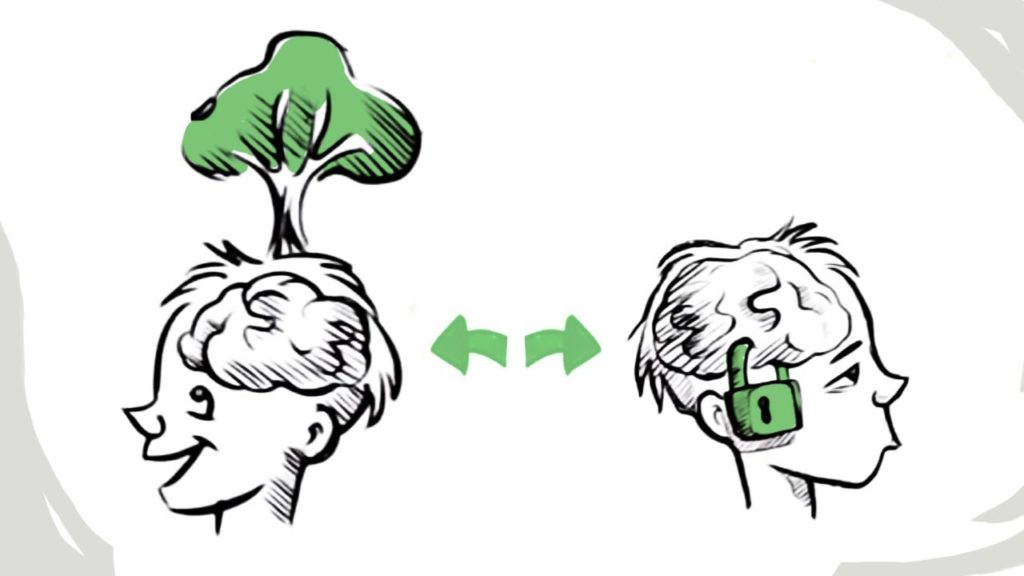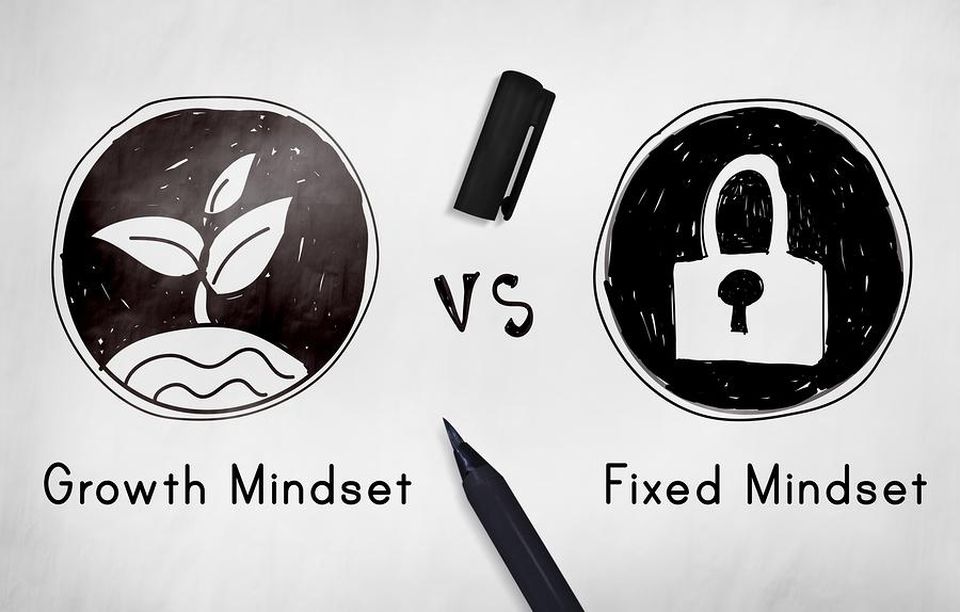If you feel like a mindset novice, before reading this article, you might find value in reading this article: What are Mindsets & Why are They Foundational to Our Success? It lays the groundwork for why I am focusing on and summarizing the benefits of a growth mindset.
Growth and Fixed Mindsets
We possess a growth mindset when we implicitly believe that we and others can change, develop, and improve our talents, abilities, and intelligence.
We possess a fixed mindset when we implicitly believe that we and others cannot change, develop, and improve our talents, abilities, and intelligence.

These implicit beliefs are filters that we view life through and because they cause us to see and interpret our world differently, they influence how we think, learn, and behave, depending upon the belief that we possess.
For example, at a fundamental level, these mindsets and their associated beliefs influence how we view and develop our self-worth.
When someone has a growth mindset, their self-worth is determined by the degree to which they develop their talents, abilities, and intelligence. Thus, to improve their self-worth, those with a growth mindset seek to improve their talents, abilities, and intelligence, often by taking on challenges and putting themselves in situations where they may fail.

When someone has a fixed mindset, their self-worth is determined by the degree to which they are seen to possess talents, abilities, and intelligence. Thus, to improve their self-worth, they want to demonstrate that they have talents, abilities, and intelligence, and want to avoid situations that might expose their lack of talents, abilities, and intelligence. In other words, they are inclined to engage in activities that come naturally and easy to them and avoid activities that do not come naturally and easy to them.

Research Benefits of Possessing a Growth Mindset
Fortunately, we have 30+ years of academic research on growth and fixed mindsets that have been able to clearly demonstrate the effect these mindsets have on how we operate. This research has repeatedly and conclusively demonstrated that those that have a growth mindset operate much more effectively than those with a fixed mindset in three primary ways.
First, a growth mindset positively influences how we interpret situational cues.
| Those with a Fixed Mindset: |
Those with a Growth Mindset: |
| See failure a threat to their self-worth | See failure as an opportunity to enhance their learning, growth, and ultimately their self-worth |
| See challenges or difficult situations as having a high likelihood of failure | See challenges or difficult situations as being ideal for their learning and development |
| See situations with a high likelihood for success as opportunities to demonstrate self-worth | See situations with low likelihood of success as opportunities to improve self-worth |
Second, a growth mindset activates specific processing dynamics to navigate our situations in a manner aligned with our interpretation of situational cues.
|
Those with a Fixed Mindset: |
Those with a Growth Mindset: |
| Develop goals to avoid failure as a way to be viewed more favorably | Develop goals to learn and develop as a way to be viewed more favorably |
| Assess progress by comparing performance to others | Assess progress through personal advancement and improvement |
| Are predisposed to avoid tasks or challenges with uncertainty for success | Are predisposed to seek out developmental opportunities and remain optimistic when struggling |
| Seek comparisons to see if they outperform others | Seek comparisons to see how they can learn |
| View feedback as being self-defeating | View feedback as valuable information |
| Are more prone to biases | Are less prone to biases |
Third, a growth mindset activates specific behavioral dispositions to navigate our situations in a manner aligned with our interpretation of situational cues.
| Those with a Fixed Mindset: |
Those with a Growth Mindset: |
| Are more likely to avoid challenges, feedback, and opportunities to learn | Are more likely to take advantage of challenges, feedback, and opportunities to learn |
| Are inclined to adopt avoidant and self-handicapping strategies in an effort to self-protect | Are inclined to adopt problem-solving strategies in an effort to develop and master |
| Are less willing to put forth effort in the face of challenges and difficulties | Are more willing to put forth effort and persist in the face of challenges and difficulties |
| Are less likely to provide quality and quantity feedback (because they don’t believe others can change, develop, and improve) | Are more likely to provide quality and quantity feedback (because they do believe others can change, develop, and improve) |
| Have lower motivation | Have higher motivation |
| Progress toward goals less quickly | Progress toward goals more quickly |
| Perform more poorly in negotiations | Perform more effectively in negotiations |
| Are more inclined to engage in emotion-focused coping strategies | Are more inclined to engage in problem-focused coping strategies |
| Are less willing to receive coaching related to underperformance | Are more willing to receive coaching related to underperformance |
| Fare less positively in challenging social situations | Fare more positively in challenging social situations |
| Set less challenging goals | Set more challenging goals |
Overall, 30+ years of research on fixed and growth mindsets demonstrates that those with a growth mindset are much more disposed to navigate their world much more effectively.
Want to learn the degree to which you have a growth mindset relative to 10,000+ people who have taken my FREE personal mindset assessment?
In my next article, I will be focusing on how we develop more of a growth mindset to capture more of these benefits in our lives.
This information is included in a recent Leadership Quarterly article that I published with my colleague Christopher Reina, which officially introduces mindsets into the leadership domain: Exploring why leaders do what they do: An integrative review of the situation-trait approach and situation-encoding schemas











2 Responses
Hi. Love the content. It’s eye-opening to see the different thoughts and behaviors that I still have that are in the Fixed Mindset side. I’ve got some work to do!
I believe the parenthetical statement in the 4th point under the Behavioral Dispositions on the Growth side should say “do” rather than “don’t” believe people can change.
Thank you, all around!